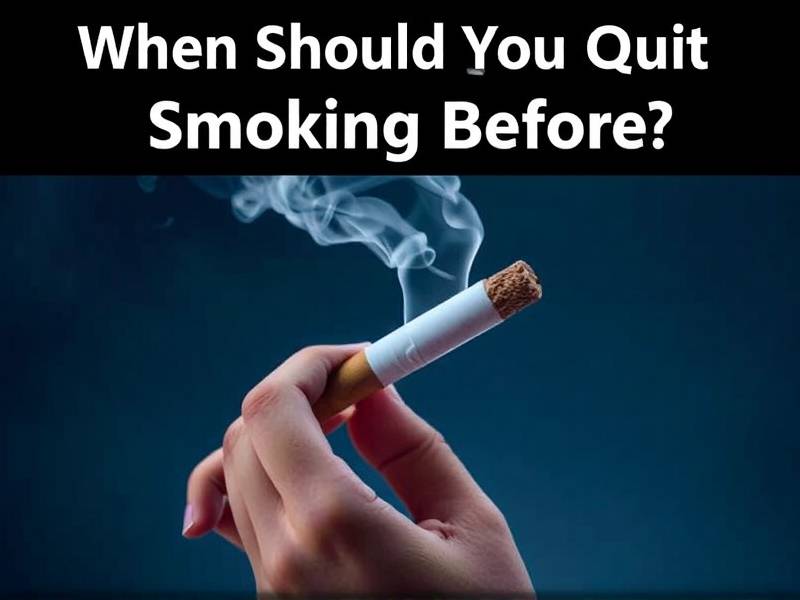When Should You Quit Smoking Before Surgery?
When Should You Quit Smoking Before Surgery: A Comprehensive Guide
Introduction: Surgery is a significant step in one's life, and it requires thorough preparation to ensure a smooth recovery. One crucial aspect of this preparation is considering when to quit smoking before the surgery. Smoking has been proven to have detrimental effects on both the body and healing process. This article delves into the importance of quitting smoking before surgery, the recommended timeline, and tips for successful quitting.
Understanding the Impact of Smoking on Surgery

-
Increased Risk of Complications: Smoking can significantly increase the risk of complications during and after surgery. It affects blood flow, reduces oxygen levels in the body, and weakens the immune system, making it harder for your body to heal properly.
-
Slower Healing Process: Smokers tend to have slower healing rates compared to non-smokers. The presence of nicotine in the bloodstream can delay wound healing, increase infection risks, and prolong hospital stays.
-
At Least 4-6 Weeks Before Surgery: It is generally recommended that you quit smoking at least four to six weeks before your scheduled surgery. This timeline allows your body enough time to start recovering from nicotine's harmful effects.
-
Benefits Begin Quickly: Even if you quit smoking just a few days before surgery, you'll start experiencing immediate benefits such as improved lung function and reduced inflammation in your arteries.
-
Consult Your Doctor: Before making any decisions about quitting smoking, it's essential to consult with your healthcare provider. They can provide personalized advice based on your specific medical condition and surgical needs.
Tips for Successful Quitting
-
Set a Quit Date: Choose a date that feels manageable for you and stick to it. This will give you a clear goal to work towards.
-
Create a Support System: Surround yourself with friends, family, or support groups who will encourage you throughout your quitting journey.

-
Identify Triggers: Be aware of situations or emotions that might trigger your desire to smoke and find healthy alternatives or coping strategies.
-
Consider Nicotine Replacement Therapy (NRT): NRT products like gum, patches, or lozenges can help alleviate withdrawal symptoms by providing controlled doses of nicotine without tobacco smoke's harmful chemicals.
-
Stay Motivated: Remember why you're quitting—your health and well-being are worth it!
Conclusion:
Quitting smoking before surgery is an essential step towards ensuring a successful recovery process. By following these guidelines and seeking support from healthcare professionals, you can increase your chances of a smooth surgical experience and long-term health benefits. Remember that quitting is challenging but achievable with determination and support!
